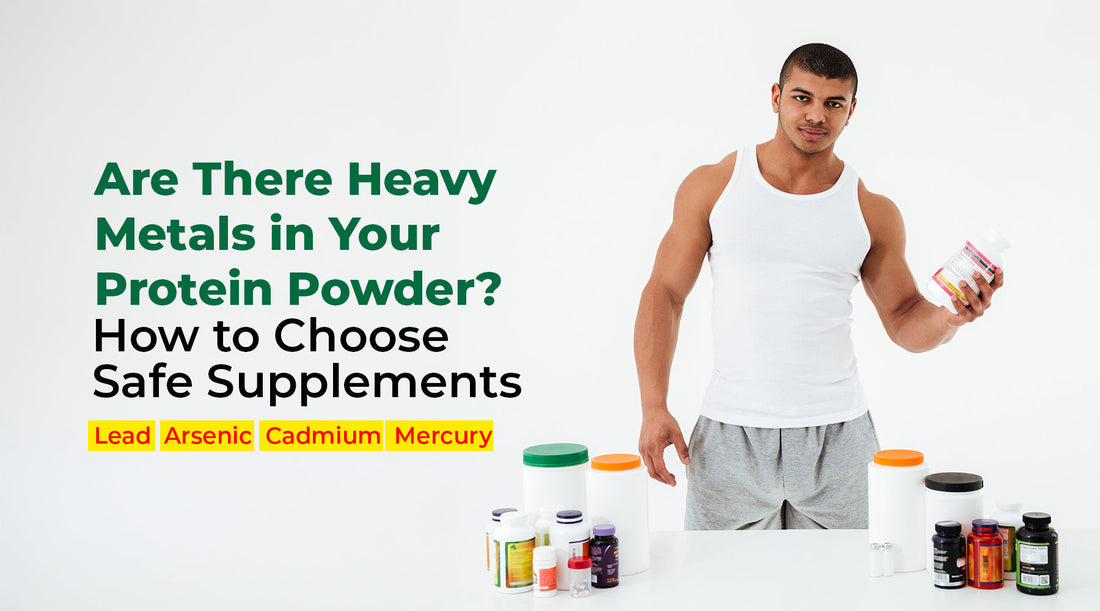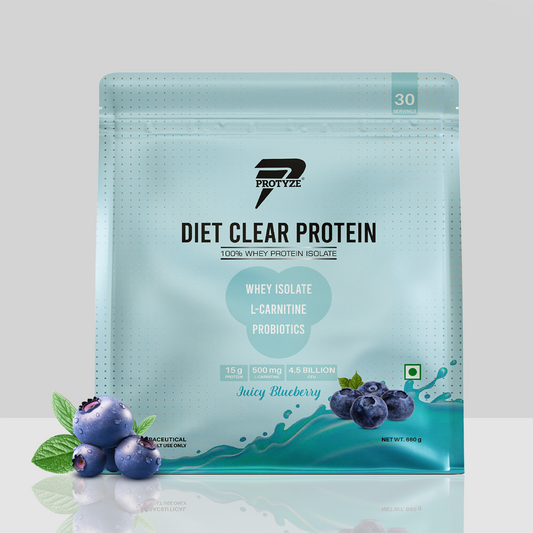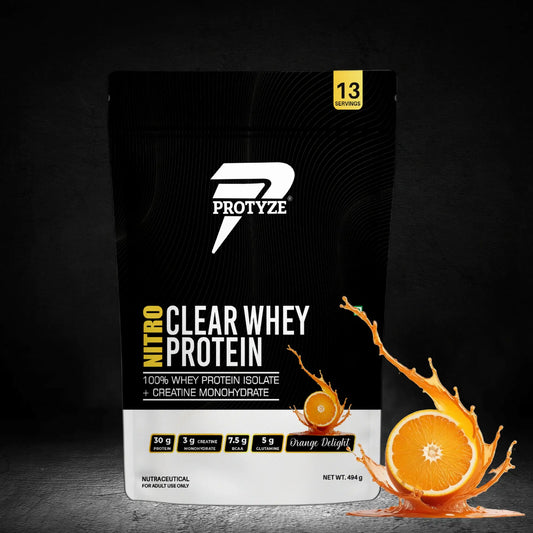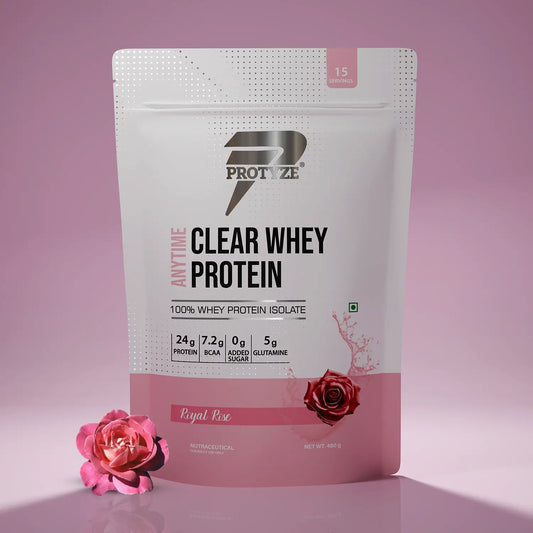In today’s fitness-driven world, protein powders are part of nearly every health routine — from athletes and gym-goers to anyone focused on better nutrition. But here’s what most people don’t realize: some protein powders may contain hidden heavy metals.
The same supplement meant to boost your performance could also expose you to toxic elements like lead, arsenic, and cadmium — which, over time, can harm your health.
So, how do these heavy metals make their way into protein powders? And more importantly, how can you choose a clean, safe, and transparent protein that truly supports your goals?
Let’s uncover the truth behind heavy metals in protein powders — and how to protect your health while getting the most out of your supplements.
What Are Heavy Metals and Why Are They Dangerous?
Heavy metals are a group of elements that have a high atomic weight and density, and they can be toxic to humans when ingested in large amounts. Some common heavy metals include lead, arsenic, cadmium, and mercury. These metals occur naturally in the environment, but human activities such as mining, industrial processes, and even agricultural practices can cause them to accumulate in food and water supplies.
When heavy metals are ingested, they can accumulate in the body and cause a variety of health issues. Over time, exposure to heavy metals can lead to serious conditions such as kidney damage, neurological disorders, and even cancer. Children, pregnant women, and people with weakened immune systems are particularly vulnerable to the harmful effects of heavy metals.
How Do Heavy Metals End Up in Protein Powder?
The presence of heavy metals in protein powder is not intentional, but it can happen during the manufacturing process. Some of the key factors that contribute to the contamination of protein powder with heavy metals include:
1. Soil Contamination:
Many protein powders, especially plant-based ones, are derived from crops like peas, soy, and hemp. These plants can absorb heavy metals from the soil in which they are grown. If the soil is contaminated with metals like lead, cadmium, or arsenic, these metals can be transferred to the protein powder during the extraction process.
2. Manufacturing Processes:
During the production of protein powder, there’s a risk of cross-contamination from the equipment or facilities used to process the raw ingredients. If proper cleaning and quality control measures are not followed, trace amounts of heavy metals can be introduced.
3. Low-Quality Ingredients:
Some protein powders are made using low-quality or poorly sourced ingredients. This increases the likelihood of contamination, as cheaper ingredients may not undergo the rigorous testing required to detect harmful substances like heavy metals.
4. Packaging:
In rare cases, protein powder can be contaminated during packaging. If the packaging materials are not safe or are reused from previous products, they might introduce harmful metals into the powder.
How Do Heavy Metals in Protein Powder Affect Your Health?
The effects of heavy metals depend on the specific metal involved and the level of exposure. Here are some potential health risks associated with heavy metals commonly found in protein powder:
- Lead: Lead exposure can cause neurological issues, developmental delays in children, and high blood pressure in adults. Chronic exposure can lead to kidney damage and anemia.
- Arsenic: Arsenic is a known carcinogen, and prolonged exposure to high levels can lead to skin lesions, lung cancer, bladder cancer, and cardiovascular disease.
- Cadmium: Cadmium exposure can damage the kidneys and bones. Long-term exposure is linked to an increased risk of lung cancer.
- Mercury: Mercury can cause neurological damage, affecting the brain, kidneys, and nervous system.
Even small amounts of these metals can accumulate in your body over time, potentially causing long-term harm. That's why choosing safe protein supplements is essential to avoid the risks of heavy metal contamination.
How to Choose Safe Protein Powder Without Heavy Metals
Now that we understand the risks of heavy metals in protein powder, let's dive into how you can choose a safe protein powder that won't put your health at risk.
1. Look for Third-Party Testing
One of the most effective ways to ensure that your protein powder is free from harmful contaminants is to choose products that undergo third-party testing. Reputable supplement brands often submit their products for independent lab testing to verify their safety, quality, and purity. These tests can detect heavy metals and other harmful substances, ensuring that the protein powder meets safety standards.
When shopping for protein powder, look for certifications like NSF Certified for Sport or Informed-Sport Certified. These certifications indicate that the product has been rigorously tested for contaminants like heavy metals, pesticides, and other harmful ingredients.
2. Check the Ingredient Source
The source of the protein is crucial when it comes to avoiding heavy metal contamination. For example, plant-based proteins are more likely to contain heavy metals due to the way crops absorb them from the soil. That doesn’t mean you should avoid plant-based protein powders altogether, but you should be selective about the brand you choose.
Whey protein powder, on the other hand, tends to have a lower risk of contamination because it is derived from milk and undergoes more thorough processing. However, it’s still important to choose whey protein that is sourced from reputable suppliers and has been tested for safety.
3. Look for Transparency
Transparency is key when choosing a safe protein powder. Look for brands that openly share the results of their third-party testing and provide information about their sourcing, manufacturing, and quality control processes. A brand that values transparency will make it easy for you to access certificates of analysis (COAs) and other relevant safety information.
4. Avoid Artificial Additives and Fillers
While artificial additives and fillers may not contain heavy metals, they can be harmful to your health in other ways. Many low-quality protein powders contain artificial sweeteners, colors, and preservatives that can lead to digestive issues and other health problems. Choose protein powders that are free from artificial additives and made with clean, natural ingredients.
5. Look for Products with Clean Label Certifications
Clean label certifications indicate that the product has been made with minimal processing and is free from harmful ingredients. Look for protein powders that are labeled as non-GMO, gluten-free, lactose-free, and organic. These certifications often indicate that the product has been produced with greater care and attention to quality.
Safe Protein Supplementation Tips
Heavy metal contamination in protein powders is a real concern, but it doesn’t have to be a risk. By prioritizing third-party testing, transparent sourcing, and clean ingredients, you can ensure that your protein supplement supports your fitness journey without compromising your health. Choosing high-quality brands that adhere to strict safety standards is key to making the right decision.
Conclusion
Choosing a safe protein powder is essential to avoid heavy metal contamination. Opting for third-party tested supplements with transparent ingredient sourcing ensures purity and safety. Protyze Whey Protein is one such trusted choice, meeting high-quality standards with rigorous testing to ensure a clean and safe product. With Protyze, you get the benefits of premium whey protein without unwanted contaminants, making it a reliable option for your health and fitness goals.
Frequently Asked Questions (FAQs)
Here are some common questions that people have when it comes to the safety of protein powder and heavy metals.
Q1. Are there harmful metals in your protein powder?
Ans: Some protein powders, especially plant-based ones, may contain traces of heavy metals like lead, arsenic, or cadmium. Choosing a clean, tested protein helps you stay safe and toxin-free.
Q2. How do I know if my protein powder contains heavy metals?
Ans: Choose protein brands with third-party testing and clean label certifications to ensure your supplement is free from heavy metals and harmful additives.
Q3. Can heavy metals in protein powder harm my health?
Ans: Long-term exposure to heavy metals in protein powders can cause serious health issues like kidney damage, neurological problems, and even cancer. The risk increases with the type, amount, and duration of exposure.
Q4. What should I look for when choosing safe protein powder?
Ans: When choosing a safe protein powder, opt for brands that are third-party tested, transparently sourced, and free from artificial additives. Look for clean-label certifications that guarantee purity, safety, and top-quality manufacturing standards.
Q5. Is whey protein safer than plant-based protein when it comes to heavy metals?
Ans: Whey protein generally has a lower risk of heavy metal contamination than plant-based protein due to its refined processing. However, both can contain traces if sourced poorly — so always choose high-quality, third-party tested protein powders to ensure purity and safety.
